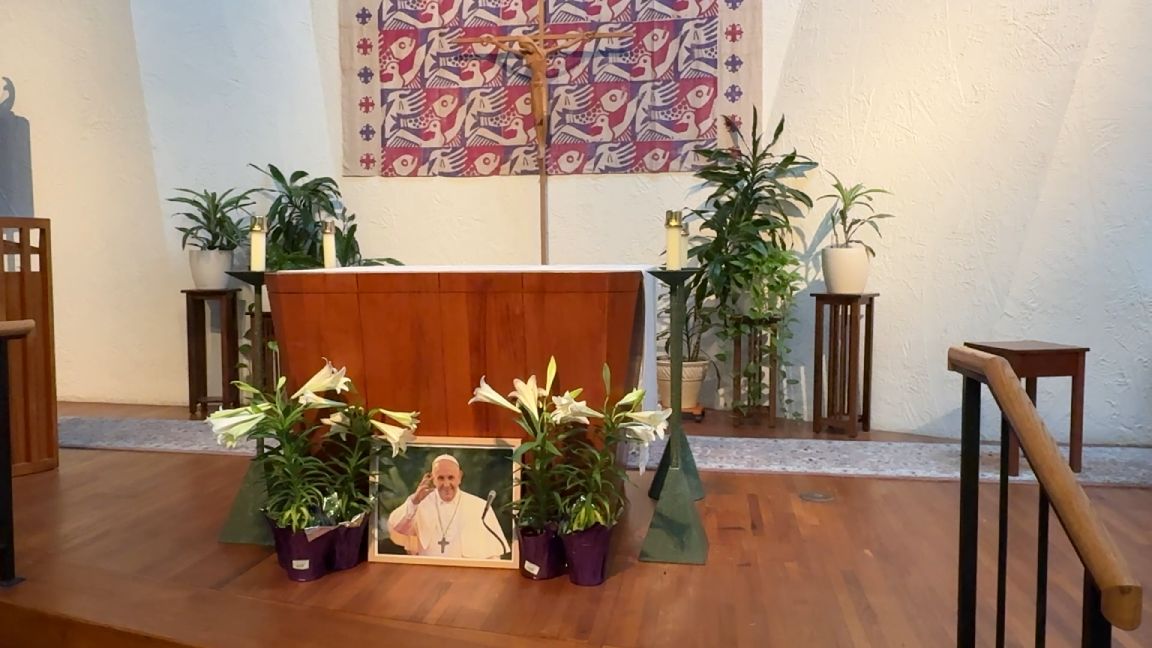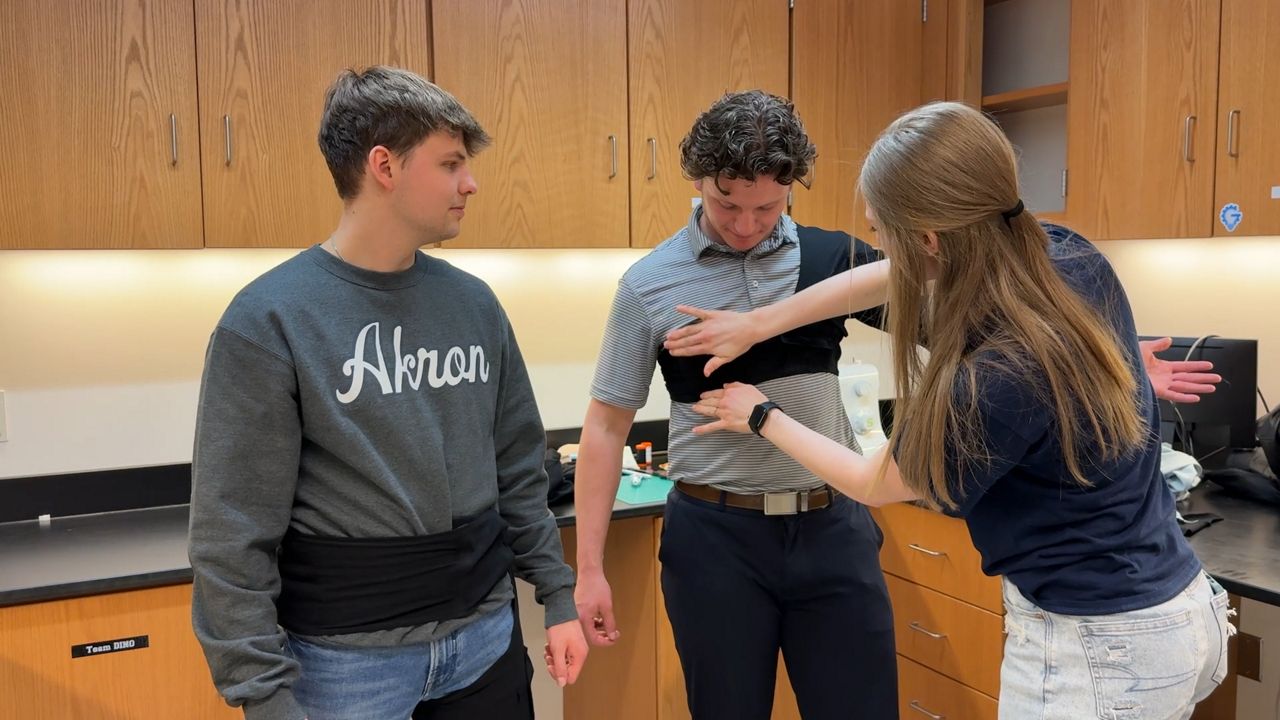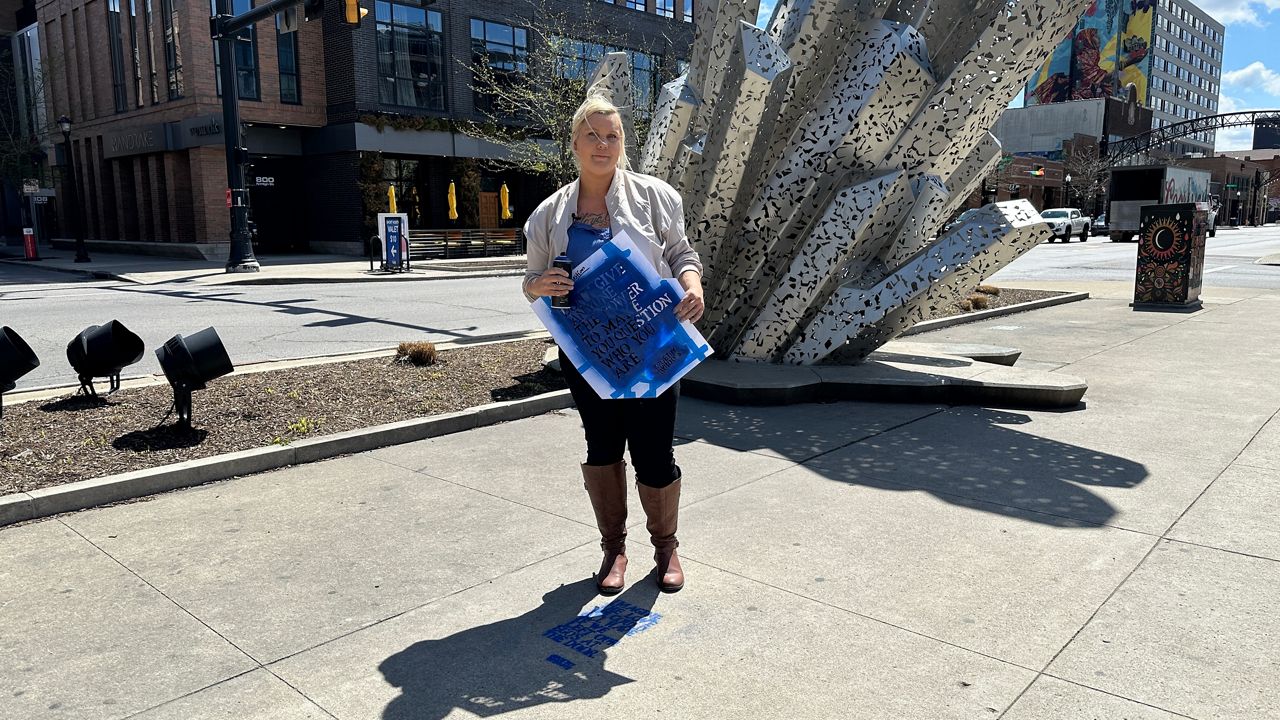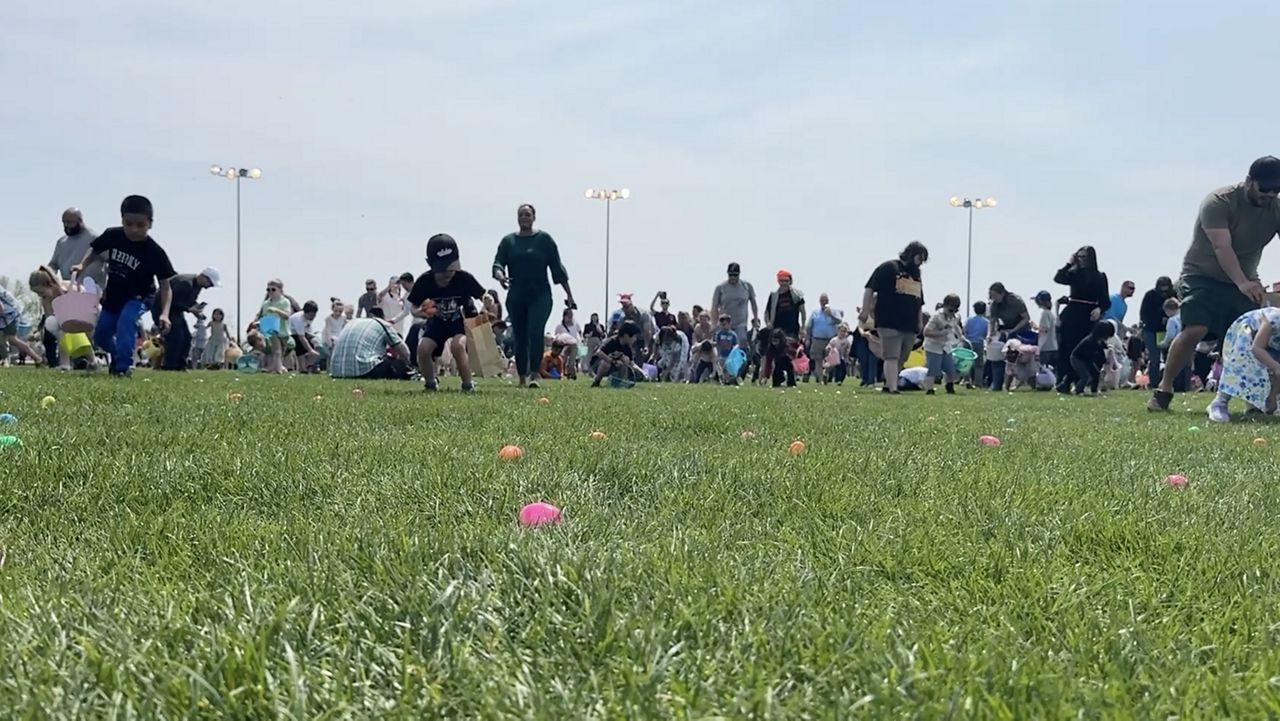MT. VERNON, Ohio — It’s a job for the brave — those who aren’t afraid of getting stung.
Jeff Gabric is giving bees something a little better than what they have in nature, and he’s doing so in his backyard apiary. Gabric said knowing the concepts of beekeeping is important “because when you go into a hive, there’s just not one set way to do it."
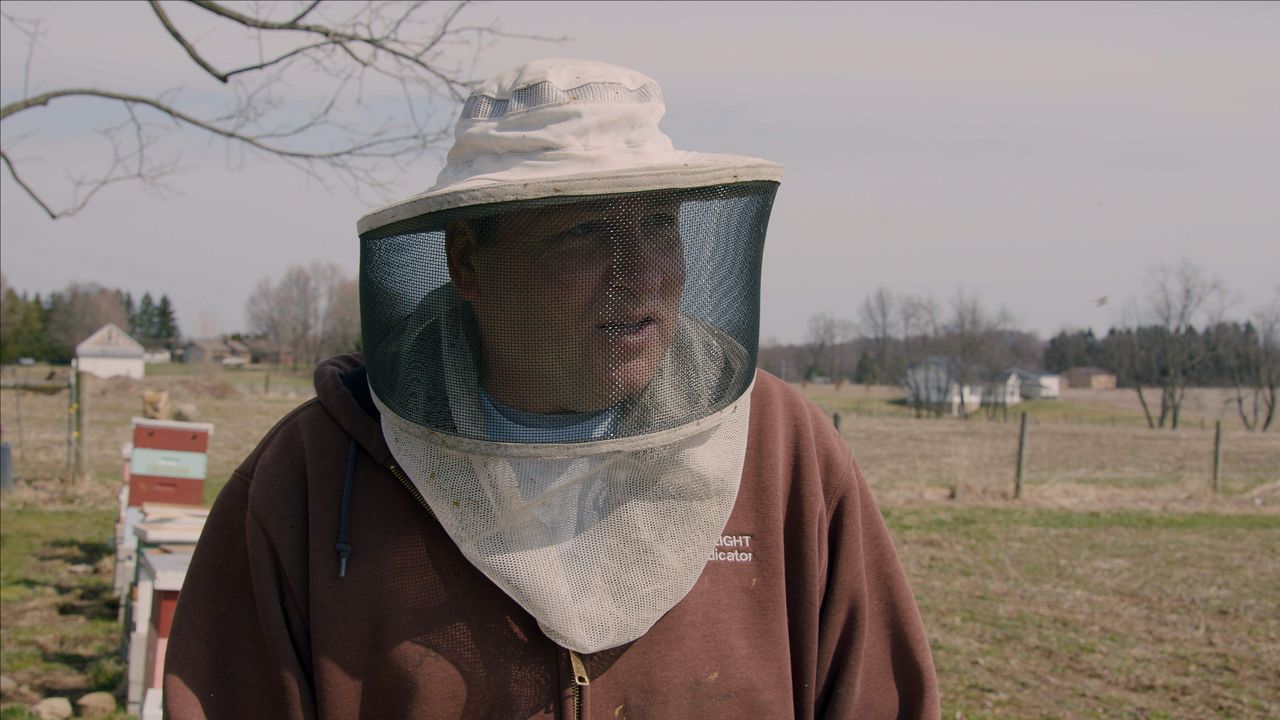
Gabric has been beekeeping for 12 years. He grew up on a farm, and his dad kept bees. He said years later, he started the hobby with one hive.
“By the end of the season, I had seven. By the end of the next year, I had 40," he said.
Gabric is also the president of the Knox County Beekeepers Association.
“We started in 2012 and we have over 200 members," he said.
Alison Smith is also a Knox County Beekeepers Association member and the shop manager at My Bee Supply. The store is owned by Gabric.
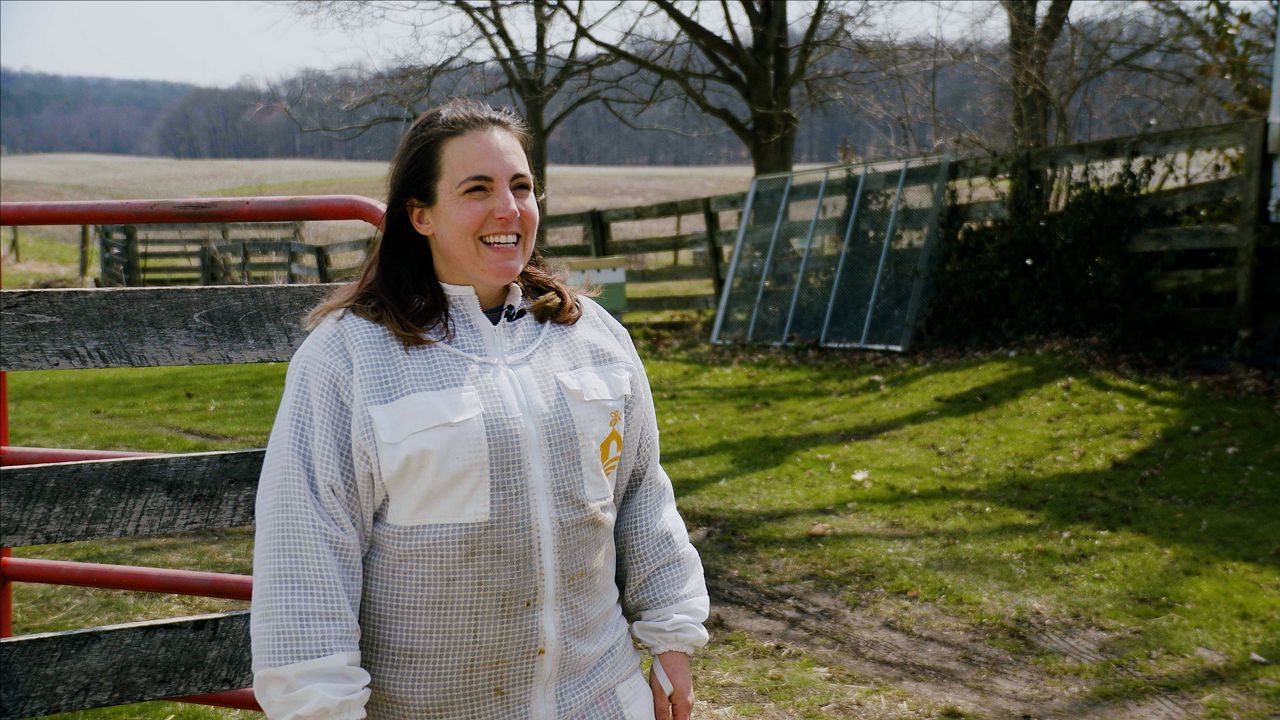
Smith said bee boxes in an apiary are painted bright colors for a reason. It’s “not just for the aesthetic reason to see all the pretty colors out there on the apiary, but also it helps the bees identify which hive is theirs. Here at Honey Bee Acres, we have over 40 hives annually and so all the different colors and the rainbow-like aesthetic is really just to let the bees know where to come home and which hive is theirs,” she said.
Smith said male bees are actually useless within each hive.
“They’re a drain on society. They’re unable to feed themselves and ironically, their only purpose is to go out and mate with another queen and that very act is what kills them so after they have finished mating, they fall to the ground and die,” said Smith.
However, each hive has a huge responsibility. Bees “pollinate somewhere close to 30 or 40 percent of the crops that we eat, the food that we eat. So if bees go away, we lose the pollination, we’ll lose some of the availability of our food source,” said Gabric.
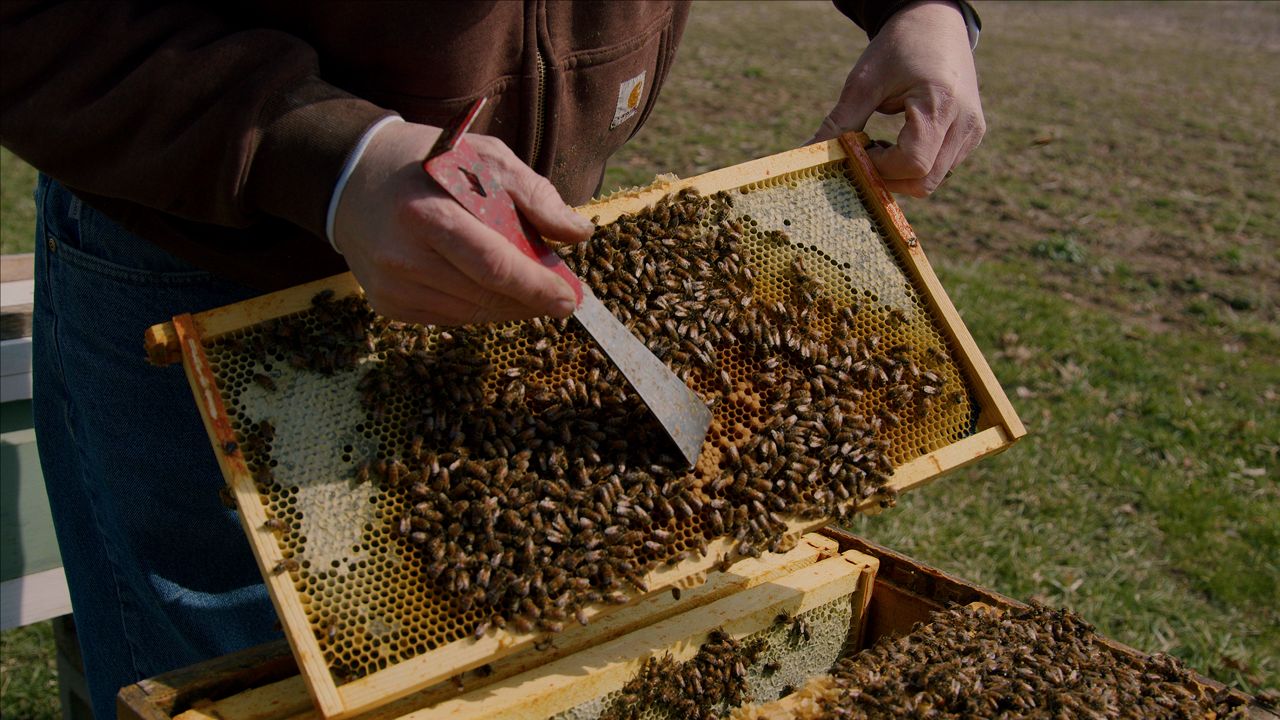
Worker bees also bring pollen back to their Queen Bee with the pollen pockets on their back legs. It’s one of the many steps to producing honey.
“There’s so much to know about beekeeping. You’ll never know it all. It’s a lifelong study,” said Gabric.
Gabric sells his honey at My Bee Supply and local farmers' markets.







